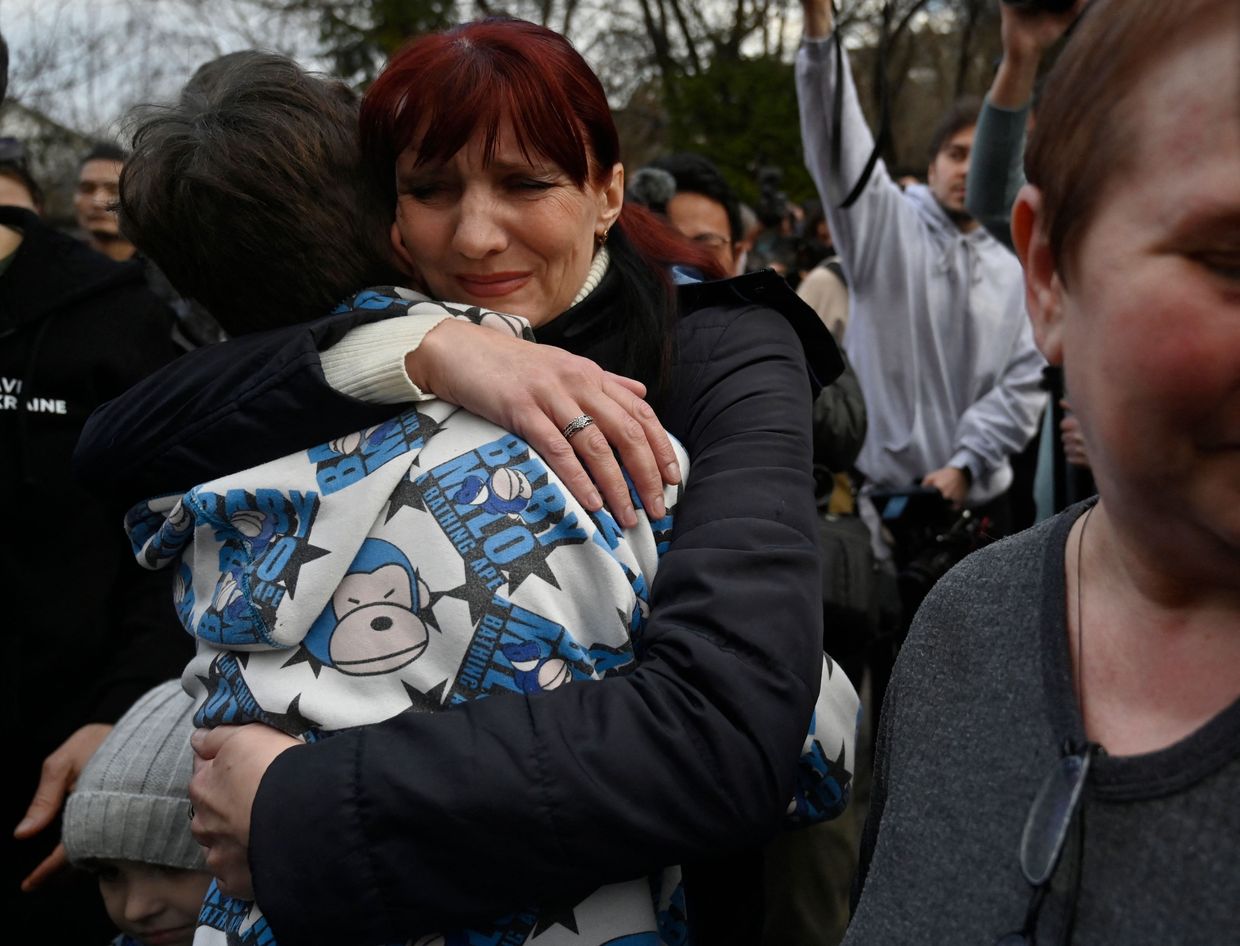Guardian: Russia 're-educates' deported Ukrainian children

Ukrainian children who have been forcibly deported to Russia are subject to systemic re-education efforts by Russian authorities, according to a report published in the Guardian on Feb. 4.
Since February 2022, nearly 20,000 Ukrainian children have been identified as abducted from Russian-occupied territories and sent to other Russian-controlled areas of Ukraine or to Russia itself, according to a Ukrainian national database.
Ukraine has only been able to return about 400 of these children from Russia.
Veronika Vlasenko, a Ukrainian child who spent 14 months in the Russian school system after the full-scale invasion, said her teachers and fellow students told her she would never be allowed to return home.
“Every day they said to me that I would be staying here for ever and would never leave Russia,” she said.
“They told me that Ukraine doesn’t exist, that it never existed, that we’re all Russians … At times the other kids would beat me for being pro-Ukrainian.”
Vlasenko was placed in a children's home in Lipetsk, Russia after she and her aunt crossed the border into Russia from Kharkiv Oblast to avoid clashes with the military in the early days of the invasion. She was eventually able to return to her family when her grandmother traveled to Russia via Poland and the Baltic countries to bring her home.
A "Russia's War on Children" conference was held in Riga on Feb. 1 to raise international awareness of the mass child deportations. First Lady Olena Zelenska traveled to Latvia to participate.
"Russia is telling (the Ukrainian children) they are not wanted, that nobody is looking for them, changing their names and trying to issue them Russian passports," Zelenska said.
Zelenska urged Ukraine's allies and neutral countries who may hold more influence in Moscow to help reunited Ukrainian children with their families.
Russian officials have claimed that Ukrainian children are able to return to Ukraine if a parent or guardian travels to Russia to retrieve them. In a few cases, including Vlasenko's, this has worked, but not every child has a relative able to make the arduous and risky trip.
Some children are also adopted by Russian families before their parents can reach them.
“Russia is trying to destroy the Ukrainian nation, not only physically, but by severing familial bonds and erasing the Ukrainian identity of the deported children,” said Andrii Kostin, Ukraine's prosecutor general.
Kostin said that Russia's child abductions constituted the largest deportation of European children since World War II.
“Russia is actively erasing their Ukrainian identity and inflicting unbelievable emotional and psychological damage,” said Latvian President Edgars Rinkevics during the conference.
“What makes it even worse is that Russia proudly exhibits its actions."
In March 2023, the International Criminal Court (ICC) issued arrest warrants for Russian President Vladimir Putin and Russian Children’s Rights Commissioner Maria Lvova-Belova, for allegedly overseeing the forced deportations of Ukrainian children to Russia.
Vlasenko said the trauma of being detained in Russia caused her to lose weight, and her hair started falling out.
“It was so hard to be alone in this environment, with everyone telling me terrible things about Ukraine,” she said.













